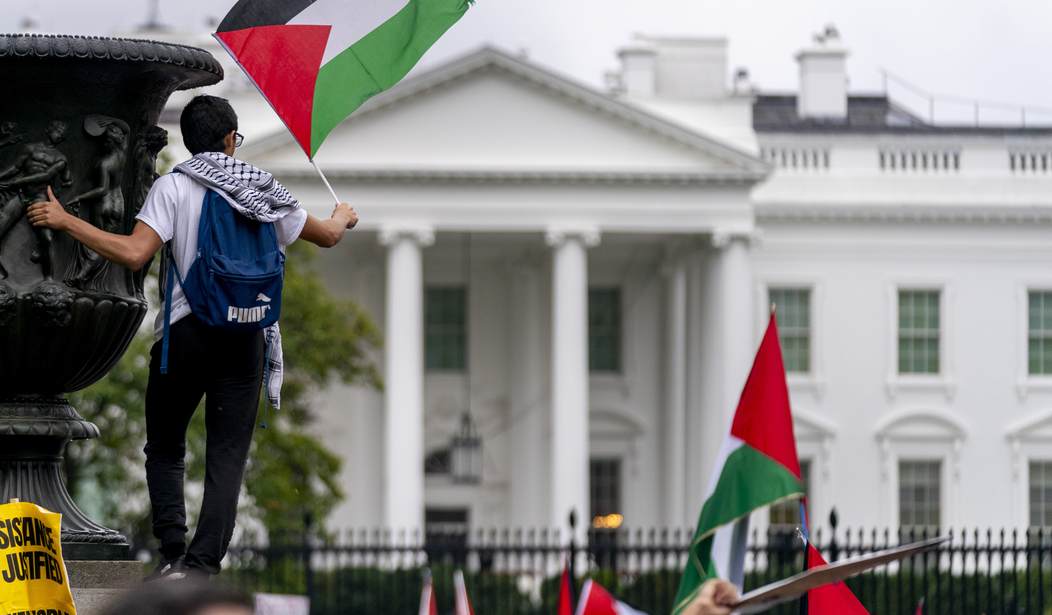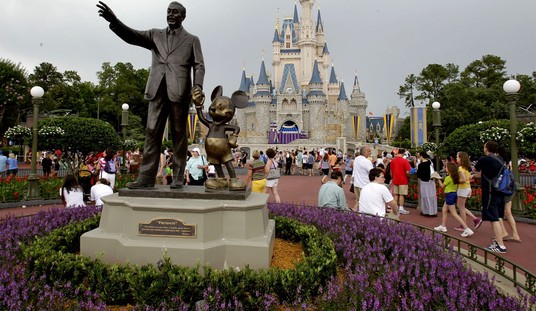On Tuesday, protestors kneeled outside of the White House in prayer as President Joe Biden held an abridged version of the iftar meal traditionally hosted by the White House for Ramadan. In past years, the dinner was attended by Muslim community leaders, but as the Biden Admin began to arrange this year's meal, would-be guests responded by systematically declining invitations, in protest to the war in Gaza.
The White House pivoted, holding a meal just for staff just for staff members and hosting a meeting for the Muslim community leaders, instead of the customary celebratory dinner.
As RedState previously reported:
Sentiments from the Muslim American community are that it is unacceptable for Muslim leaders to share a meal with the White House, given their perception that the Biden administration is supporting the Israeli government's actions in Gaza while the Palestinian people face a starvation crisis.
White House press secretary Karine Jean-Pierre confirmed that President Biden and Vice President Kamala Harris would instead meet with Muslim community leaders on Tuesday. When asked why they would not attend the iftar, Jean-Pierre explained that they requested a meeting instead of a meal.
The meeting lasted over an hour and was attended by Biden, Vice President Kamala Harris, National Security Advisor Jake Sullivan, and other senior officials. Among the speakers were three physicians who had recently cared for patients in Gaza, addressing the president.
At the start of the discussion, Thaer Ahmad, a Palestinian-American doctor from Chicago who had volunteered in Gaza, declared he was walking out of the meeting in protest. Ahmad reported that he told Biden that Israel’s looming ground invasion of Rafah would be a “blood bath and a massacre.”
Prior to leaving, Ahmad handed the president a letter from an 8-year-old orphaned girl in Rafah, a city marked for Israel's future military actions, along with a photo. The New York Times obtained and translated the letter, which read:
We in Rafah are suffering a lot because we live in a very small tent and the tank can enter the tent and run me over. We don’t want massacres and suffering. We want safety, to live like the rest of the world’s children. Please, Biden, stop this war, it’s enough, stop this war please.
Ahmad spoke for about six minutes before announcing his departure and noted that Biden's reaction to his protest was subdued, reporting that Biden only said, "I understand.'"
On Wednesday, when White House press Secretary Karine Jean-Pierre was asked about Biden's response to Ahmad's decision to leave, she stated that the president "respects their freedom to peacefully protest."
Before the meeting began, Ahmad had made up his mind, planning to calmly walk out at the start of the session.
Ahmad said,
I’m not going to yell at anybody. I’m not going to throw anything. I’m just going to walk out calmly. And that’s what I did.
His reasoning for this form of protest included his concerns about recent news reports regarding U.S. weapons sales to Israel. Ahmad plans to visit Gaza again at the end of the month.
Later in the meeting, when attendees who stayed the duration asked Biden about calling for an immediate and permanent ceasefire in Gaza, Biden responded that Israel would push back because of concerns about the hostages that continue to be held by Hamas.
The taking of hostages is a war crime under international law.
Read More:
WATCH: Joe Biden's Fancy Fundraiser Interrupted by Pro-Palestinian Protestors












Join the conversation as a VIP Member